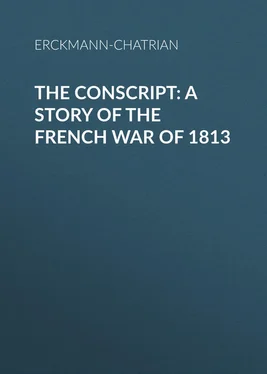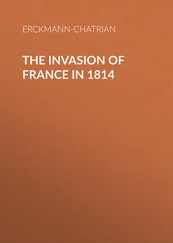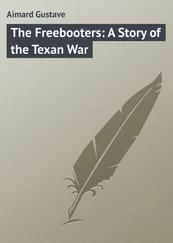Erckmann-Chatrian - The Conscript - A Story of the French war of 1813
Здесь есть возможность читать онлайн «Erckmann-Chatrian - The Conscript - A Story of the French war of 1813» — ознакомительный отрывок электронной книги совершенно бесплатно, а после прочтения отрывка купить полную версию. В некоторых случаях можно слушать аудио, скачать через торрент в формате fb2 и присутствует краткое содержание. Жанр: foreign_antique, foreign_prose, Историческая проза, на английском языке. Описание произведения, (предисловие) а так же отзывы посетителей доступны на портале библиотеки ЛибКат.
- Название:The Conscript: A Story of the French war of 1813
- Автор:
- Жанр:
- Год:неизвестен
- ISBN:нет данных
- Рейтинг книги:4 / 5. Голосов: 1
-
Избранное:Добавить в избранное
- Отзывы:
-
Ваша оценка:
- 80
- 1
- 2
- 3
- 4
- 5
The Conscript: A Story of the French war of 1813: краткое содержание, описание и аннотация
Предлагаем к чтению аннотацию, описание, краткое содержание или предисловие (зависит от того, что написал сам автор книги «The Conscript: A Story of the French war of 1813»). Если вы не нашли необходимую информацию о книге — напишите в комментариях, мы постараемся отыскать её.
The Conscript: A Story of the French war of 1813 — читать онлайн ознакомительный отрывок
Ниже представлен текст книги, разбитый по страницам. Система сохранения места последней прочитанной страницы, позволяет с удобством читать онлайн бесплатно книгу «The Conscript: A Story of the French war of 1813», без необходимости каждый раз заново искать на чём Вы остановились. Поставьте закладку, и сможете в любой момент перейти на страницу, на которой закончили чтение.
Интервал:
Закладка:
I returned about four in the evening to Phalsbourg, somewhat calmer than when I set out. But as I went up the Rue de la Munitionnaire, I heard at the corner of the college the drum of the sergent-de-ville , Harmantier, and I saw a throng gathered around him. I ran to hear what was going on, and I arrived just as he began reading a proclamation.
Harmantier read that, by the senatus-consultus of the 3d, the drawing for the conscription would take place on the 15th.
It was already the 8th, and only seven days remained. This upset me completely.
The crowd dispersed in the deepest silence. I went home sad enough, and said to Monsieur Goulden:
"The drawing takes place next Thursday."
"Ah!" he exclaimed, "they are losing no time, things are pressing."
It is easy to imagine my grief that day and the days following. I could scarcely stand; I constantly saw myself on the point of leaving home. I saw myself flying to the woods, the gendarmes at my heels, crying, "Halt! halt!" Then I thought of the misery of Catharine, of Aunt Grédel, of Monsieur Goulden. Then I imagined myself marching in the ranks with a number of other wretches, to whom they were crying out, "Forward! charge bayonets!" while whole files were being swept away. I heard bullets whistle and shells shriek; in a word, I was in a pitiable state.
"Be calm, Joseph," said Monsieur Goulden; "do not torment yourself thus. I think that of all who may be drawn there are probably not ten who can give as good reasons as you for staying at home. The surgeon must be blind to receive you. Besides, I will see Monsieur the Commandant. Calm yourself."
But these kind words could not reassure me.
Thus I passed an entire week almost in a trance, and when the day of the drawing arrived, Thursday morning, I was so pale, so sick-looking that the parents of conscripts envied, so to speak, my appearance for their sons. "That fellow," they said, "has a chance; he would drop the first mile. Some people are born under a lucky star!"
VI
The town-house of Phalsbourg, that Thursday morning, January 15, 1813, during the drawing of the conscription, was a sight to be seen. To-day it is bad enough to be drawn, to be forced to leave parents, friends, home, one's cattle and one's fields, to go and learn – God knows where – " One! two! one! two! halt! eyes left! eyes right! front! carry arms!" etc., etc. Yes, this is all bad enough, but there is a chance of returning. One can say, with something like confidence: "In seven years I shall see my old nest again, and my parents, and perhaps my sweetheart. I shall have seen the world, and will perhaps have some title to be appointed forester or gendarme." This is a comfort for reasonable people. But then , if you had the ill-luck to lose in the lottery, there was an end of you; often not one in a hundred returned. The idea that you were only going for a time never entered your head.
The enrolled of Harberg, of Garbourg, and of Quatre-Vents were to draw first; then those of the city, and lastly those of Wechem and Mittelbronn.
I was up early in the morning, and with my elbows on the work-bench I watched the people pass by; young men in blouses, poor old men in cotton caps and short vests; old women in jackets and woollen skirts, bent almost double, with a staff or umbrella under their arms. They arrived by families. Monsieur the Sub-Prefect of Sarrebourg, with his silver collar, and his secretary, had stopped the day before at the "Red Ox," and they were also looking out of the window. Toward eight o'clock, Monsieur Goulden began work, after breakfasting. I ate nothing, but stared and stared until Monsieur the Mayor Parmentier and his co-adjutor, came for Monsieur the Sub-Prefect.
The drawing began at nine, and soon we heard the clarionet of Pfifer-Karl and the violin of big Andrès resounding through the streets. They were playing the "March of the Swedes," an air to which thousands of poor wretches had left old Alsace for ever. The conscripts danced, linked arms, shouted until their voices seemed to pierce the clouds, stamped on the ground, waved their hats, trying to seem joyful while death was at their hearts. Well, it was the fashion; and big Andrès, withered, stiff, and yellow as boxwood, and his short chubby comrade, with cheeks extended to their utmost tension, seemed like people who would lead you to the church-yard all the while chatting indifferently.
That music, those cries, sent a shudder through my heart.
I had just put on my swallow-tailed coat and my beaver hat, to go out, when Aunt Grédel and Catharine entered, saying:
"Good-morning, Monsieur Goulden. We have come for the conscription."
Then I saw how Catharine had been crying. Her eyes were red, and she threw her arms around my neck, while her mother turned to me.
Monsieur Goulden said:
"It will soon be the turn of the young men of the town."
"Yes, Monsieur Goulden," answered Catharine in a choking voice; "they have finished Harberg."
"Then it is time for you to go, Joseph," said he; "but do not grieve; do not be frightened. These drawings, you know, are only a matter of form. For a long while past none can escape; for if they escape one drawing, they are caught a year or two after. All the numbers are bad. When the council of exemption meets, we will see what is best to be done. To-day it is merely a sort of satisfaction they give the people to draw in the lottery; but every one loses."
"No matter," said Aunt Grédel; "Joseph will win."
"Yes, yes," replied Monsieur Goulden, smiling, "he cannot fail."
Then I sallied forth with Catharine and Aunt Grédel, and we went to the town square, where the crowd was. In all the shops, dozens of conscripts, purchasing ribbons, thronged around the counters, weeping and singing as if possessed. Others in the inns embraced, sobbing; but still they sang. Two or three musicians of the neighborhood – the Gipsy Walteufel, Rosselkasten, and George Adam – had arrived, and their pieces thundered in terrible and heart-rending strains.
Catharine squeezed my arm. Aunt Grédel followed.
Opposite the guard-house I saw the pedler Pinacle afar off, his pack opened on a little table, and beside it a long pole decked with ribbons which he was selling to the conscripts.
I hastened to pass by him, when he cried:
"Ha! Cripple! Halt! Come here; I have a ribbon for you; you must have a magnificent one – one to draw a prize by."
He waved a long black ribbon above his head, and I grew pale despite myself. But as we ascended the steps of the town-house, a conscript was just descending; it was Klipfel, the smith of the French gate; he had drawn number eight, and shouted:
"The black for me, Pinacle! Bring it here, whatever may happen."
His face was gloomy, but he laughed. His little brother Jean was crying behind him, and said:
"No, no, Jacob! not the black!"
But Pinacle fastened the ribbon to the smith's hat, while the latter said:
"That is what we want now. We are all dead, and should wear our own mourning."
And he cried savagely:
" Vive l'Empereur! "
I was better satisfied to see the black ribbon on his hat than on mine, and I slipped quickly through the crowd to avoid Pinacle.
We had great difficulty in getting into the townhouse and in climbing the old oak stairs, where people were going up and down in swarms. In the great hall above, the gendarme Kelz walked about maintaining order as well as he could, and in the council-chamber at the side, where there was a painting of Justice with her eyes blindfolded, we heard them calling off the numbers. From time to time a conscript came out with flushed face, fastening his number to his cap and passing with bowed head through the crowd, like a furious bull who cannot see clearly and who would seem to wish to break his horns against the walls. Others, on the contrary, passed as pale as death. The windows of the town-house were open, and without we heard six or seven pieces playing together. It was horrible.
Читать дальшеИнтервал:
Закладка:
Похожие книги на «The Conscript: A Story of the French war of 1813»
Представляем Вашему вниманию похожие книги на «The Conscript: A Story of the French war of 1813» списком для выбора. Мы отобрали схожую по названию и смыслу литературу в надежде предоставить читателям больше вариантов отыскать новые, интересные, ещё непрочитанные произведения.
Обсуждение, отзывы о книге «The Conscript: A Story of the French war of 1813» и просто собственные мнения читателей. Оставьте ваши комментарии, напишите, что Вы думаете о произведении, его смысле или главных героях. Укажите что конкретно понравилось, а что нет, и почему Вы так считаете.












